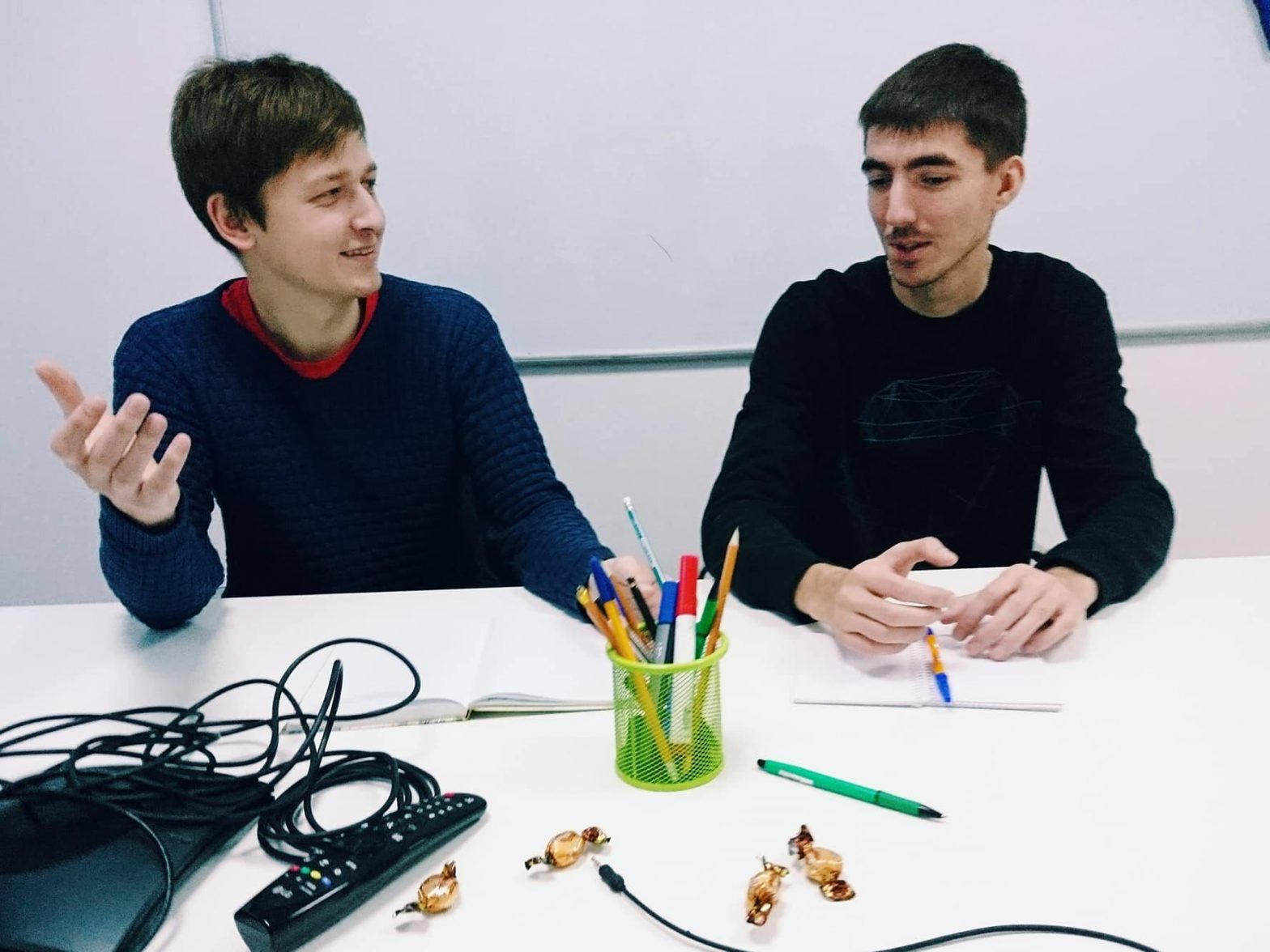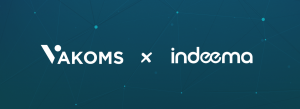PLLUG Community –
Open Programming in Lviv

Ukraine is a home to the highest number of IT experts in Europe. It has strong educational system, a large developer community, and hosts a variety of annual high-tech events. Lviv Linux Users Group have created PLLUG community that focuses on technical training and education.
Programming in Lviv Linux Users Group
Programming in Lviv Linux Users Group (PLLUG) – is an open community for anyone interested in modern informational technologies, free/open-source software, and software development itself.
Its aim is to form a community of people that improve their professional level and help others to do the same. Exploring and applying the best of available principles and practices, the community believes:
“The best education is practice, the best knowledge is experience.”
The PLLUG Community was created on the initiative of several Linux Users Group participants, in 2009, as a programming group for students at the Faculty of Electronics. Over the years, they have held hundreds of events and conducted courses that contain lectures, workshops, and research reports. PLUUG’s meetings are always held in an informal atmosphere, with lots of practical examples and discussions.
At the moment, there are six thematic courses in the community: Web, Android, C++ / Qt, iOS, .NET / C#, and Hardware.
We spoke to Alex Chmykhalo, the co-founder of PLLUG, senior C++ engineer at Vakoms, and Taras Teslyuk, PLLUG Core Team member, senior Android engineer at Vakoms, about the community’s life and events.
– What’s the main idea behind PLLUG Community?
Alex Chmykhalo: The main idea behind our community is its openness. To join PLLUG, all you need is a desire to learn, no exams to take, no fees to pay. The participants of our community range from professional developers to students of higher educational establishments and even schoolchildren.
One of the lessons we’ve learned during the 8 years of the community’s existence is the importance of openness and freedom in terms of engagement for all participants. There are a lot of students among the participants, and we encourage them to take an active part in PLLUG life, share their own ideas and become a significant part of our IT community.
Taras Teslyuk: Over the last year, we are increasingly focusing on the structure of PLLUG Community and the goals we are pursuing. We aim to form a community of people who improve their professional level and help others make their first steps in software development.
– Does PLLUG Community have a policy, manifesto, or any other documents declaring your main principles?
Alex Chmykhalo: Yes, we have PLLUG Community Manifesto, which is published on the official website:
“We do not hide our goals, principles, knowledge, or the experience we’ve got. All our initiatives are transparent and open to discussion. This information is open and free for everyone, outside the community as well. And it will always remain this way.
We explore and apply the best available principles and practices. We do it every day, without compromise: while learning, programming, practicing, and even in our personal lives.
We value our key principles above all else. And they are: openness, flexible participation, courage, high initiative, mutual respect, and accessibility for everyone. Our driving force is the initiative of all the participants. Anyone can join PLLUG Community. There are no exceptions.
We are an open community. This is our Manifesto.”
– Could you please tell more about PLLUG program? What courses and events do you have?
Taras Teslyuk: At the moment, we have six main courses in the community: Web Fullstack (JavaScript), Android (Java), C++ / Qt, iOS (Swift), .NET / C#, and Hardware/Electronics. The main part of each course is the PLLUG Roadmap which includes regular lectures and workshops that are designed to help participants learn the chosen language or technology step by step. Participants usually receive training materials and tasks for independent work and then take part in educational mini-projects.
The participation ends at PLLUG Summer Camp – an annual software development marathon. The whole summer participants work on their projects, mentored by experienced developers, and then make presentations of their work at the first PLLUG autumn gathering.
– Who are the PLLUG Core Team? Founders? Mentors?
Alex Chmykhalo: PLLUG Core Team is the driving force of the community, no doubt.
PLLUG Core Team consists of the most active participants. Every six months before the start of the new season (semester), we distribute responsibilities between its members.
As a rule, the organizational team is fairly settled and includes participants who understand and share the values and principles of the PLLUG community. Our experience shows that a clear division of responsibilities and roles within PLLUG Core allows us to manage community work more efficiently.
There are several key roles the PLLUG Core covers. For example, community coordinators are responsible /for the organization’s internal and external communications. In addition, they protect our values and manage several important events, such as the beginning and the end of the learning season.
Branch maintainers, in turn, are responsible for managing meetings and mentoring students during the Summer Camp software development marathon. In most cases, they are developers who have practical experience in the technology taught in a particular course.
We share information about our meetings mainly through the PLLUG website and our social networking pages, but the majority of the participants learn about PLLUG from other community members, their friends, and colleagues.
– Which technologies and courses are your participants most interested in?
Taras Teslyuk: It’s hard to say exactly, but probably this is Web and mobile application development. Though, at iOS mobile development course there are not a lot of people. The reason being,you need to have a lot of expensive devices (Mac, iPhone, etc.) to be able to run and test your code. This probably makes Android and Web the most accessible and popular courses.
Over the past years, we had approximately 500 people engaged in the community to various extents. Every semester we have newcomers on each of our courses (20-30 people). It’s hard to tell the exact numbers as we don’t register the participants.
– How much do PLLUG courses cost?
Alex Chmykhalo: All community-based activities are free. Always. It’s also worth mentioning that participants are always welcome to share their own experiences – PLLUG meetings, as well as participation in events, are open to everybody.
– So, are PLLUG Roadmaps free too? Are there any sponsors supporting the community’s development?
Alex Chmykhalo: PLLUG has a network of partners. The small resources that are sometimes needed for the organization of events we receive from them. Our partners are IT companies that understand and share our values. Many of them have been cooperating with our community for a long time.
One of such partners is Vakoms, a Ukrainian custom software development company. Although our partners are not obliged to give jobs to PLLUG’s participants, Vakoms has adopted a good practice of coming to the final project presentations, assessing the work of every student and hiring the best PLLUG graduates. If, for instance, the company requires a junior Android or iOS developer the community can connect it with some promising students.
The community also interacts with universities and student trade union committees. An example of such cooperation is the organization of the hackathon “Night of Code”.
– Any plans for the nearest future?
Alex Chmykhalo: At the moment, we’re having regular lectures within the PLLUG Roadmaps, and we’re also planning to hold workshops/training at the end of the semester (winter time). This year we want to make a competition in algorithmic development (C++) and hold a set of lectures on Agile and Scrum. Additionally, one of our community members will make a presentation on the topic of Career in IT.
In conclusion
PLLUG Community is among those IT communities that have direct influence on increasing the IT potential of Ukraine. The combination of such factors as highly skilled IT professionals, growing innovative environment, and a strong developer community brings Ukrainian tech scene to the top of the IT market.




